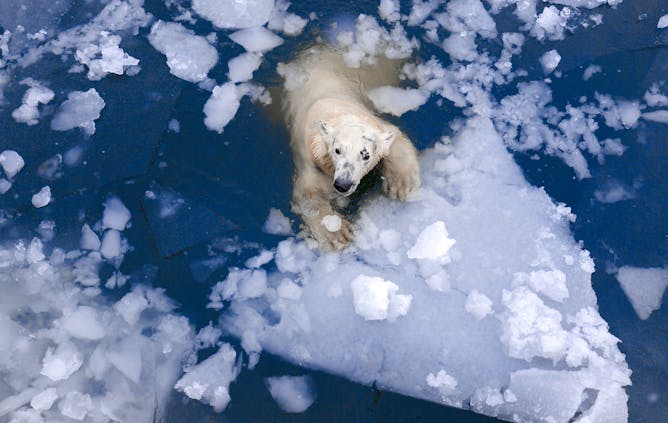|
A mystery has been solved about a perplexing environmental problem in the Arctic. Today in The Conversation Canada, Feiyue Wang of the University of Manitoba tells us how he was part of a research team that looked at why marine animals in the western Arctic have higher mercury levels than those in the east. Read on to find out how scientists answered that question.
A decade after the Great Recession, Deborah de Lange of Ryerson University says changes to our economy are still needed to make sure major industries are never in a position again to fail.
Research shows psychotherapy is highly effective. But what makes a great psychotherapist? Edward Johnson University of Manitoba says the answer may surprise you.
And finally… Constantine Passaris of University of New Brunswick had a chance this summer to be a visiting professor in Greece. The experience allowed him to see first hand the unique way Greece supports the arts and how other countries could learn from that model.
Regards,
|

Animals in the western Arctic have higher levels of mercury in their bodies than those in the eastern Arctic.
(Shutterstock)
Feiyue Wang, University of Manitoba
A new study demystifies regional differences in mercury levels in marine animals in the Canadian Arctic.
|

No industry should be considered too big to fail, including the auto industry.
(Shutterstock)
Deborah de Lange, Ryerson University
Ensuring no industry becomes too big to fail can be achieved by changing the way companies are run. The aim is to develop a sustainable model for corporations.
|

Successful therapy involves collaboration. Both therapist and client work at maintaining a positive relationship and need to continuously respond and adjust to the other.
(Shutterstock)
Edward A. Johnson, University of Manitoba
Therapy works. But success has little to do with your therapist’s experience, gender, graduate degree, or even the school of therapy they practise.
|

Despite its economic crises, Greece did not falter in its mission to support arts and culture. Rhodes, pictured here, has become a role model when it comes to promoting a visionary cultural policy and supporting a vibrant arts and culture community.
Serhat Beyazkaya/Unsplash
Constantine Passaris, University of New Brunswick
The Greek model of supporting the arts is both old and ongoing; it embraces difference and internationalism and believes art is the cornerstone to civil society. We should learn from that model.
|
Health + Medicine
|
-
Michael L. Millenson, Northwestern University
As health care grows more digital, an array of health apps promise to track steps, count heartbeats and look at moles. But without more FDA oversight, could we be shooting ourselves in the foot?
|
|
Politics
|
-
Nader Habibi, Brandeis University
The disappearance and alleged murder of Saudi journalist Jamal Khashoggi is worsening relations between US allies Turkey and Saudi Arabia. An expert on the region believes there may be a way out.
|
|
Science + Technology
|
-
Wendy Whitman Cobb, Cameron University
The United States already has a space agency: NASA. So why do we need a Space Force, and what would it do? Could a Space Force strain diplomatic relationships, reigniting the race to militarize space?
|
|